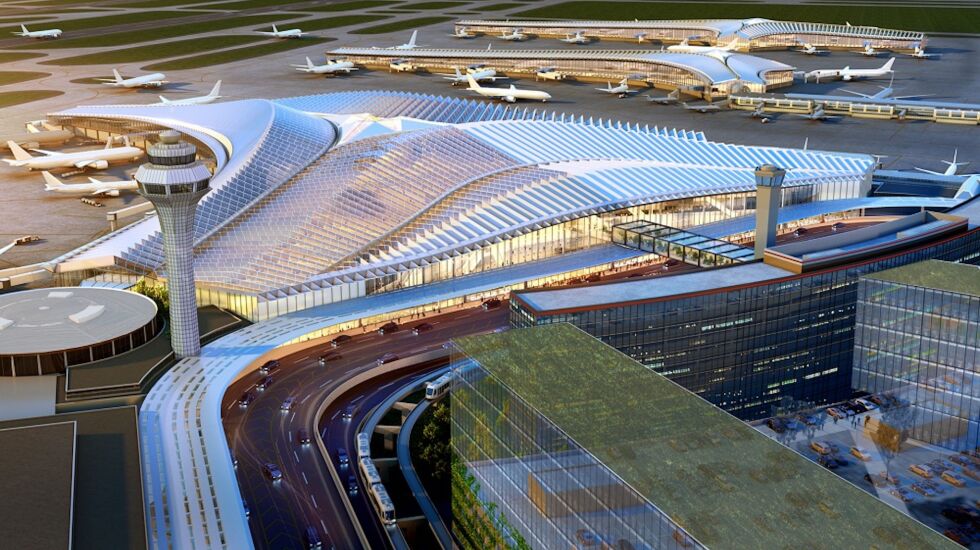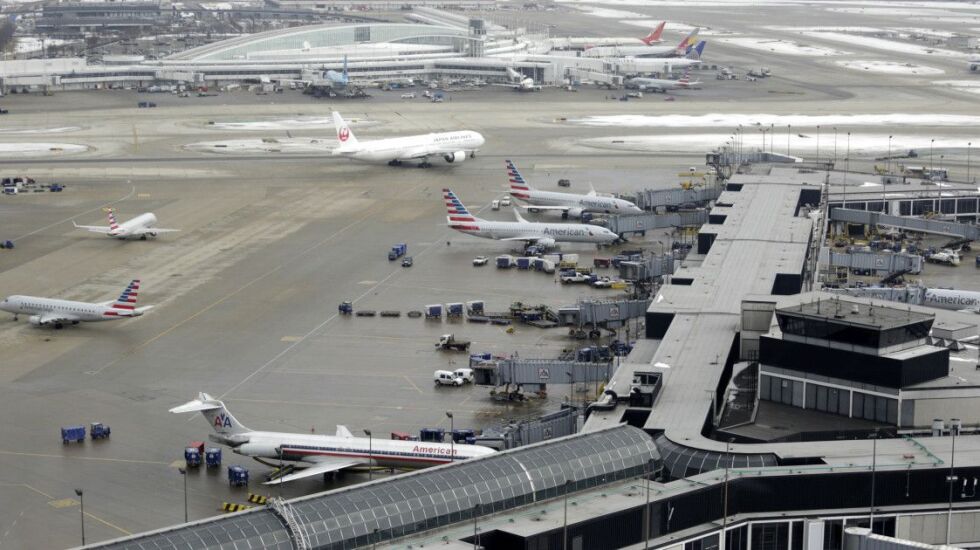
The retiring CEO of World Business Chicago urged Mayor Brandon Johnson on Wednesday to “find solutions that work for the airlines” to salvage construction of a global terminal and two satellite concourses at O’Hare Airport that airline officials say are $1.5 billion over budget.
The Chicago Sun-Times reported last week that O’Hare’s two largest carriers, United and American, want to slow down, dramatically scale back or indefinitely ground the airport’s massive expansion project. The effort is bankrolled by airline ticket taxes, landing fees, concessions and other revenue sources at the airport.
Both airlines stressed they remain committed to modernizing O’Hare, but in a way that “not only ensures O’Hare’s future financial stability and competitiveness, but also limits costs” for passengers.
Days after announcing his resignation from the public-private job growth agency known as World Business Chicago, Michael Fassnacht urged City Hall and the two major carriers to work out their differences.
That’s how important Fassnacht believes it is to complete the massive expansion project, even if its original $8.7 billion price tag has ballooned to $12.1 billion.

Both airlines confirmed city officials have told them the next major phase of O’Hare work is $1.5 billion — 24% — over budget. They fear additional overruns during construction of the global terminal, which would replace Terminal 2. The new terminal was designed by the firm of renowned Chicago architect Jeanne Gang.
“We cannot overstate the importance of O’Hare. When I talk with corporations, O’Hare Airport is one of the key reasons why corporations love Chicago, why they stay here, why they expand and relocate. O’Hare Airport is not just an economic engine but also a long-term competitive advantage,” Fassnacht told the Sun-Times.
“I’m not involved in details of the negotiations. But I hope they find a solution that works for the airlines, for the city for everyone. … That is a critical topic for our city.”
Former Mayor Rahm Emanuel, who negotiated the original agreement, has urged Johnson to stand firm and demand that United and American honor the contract they signed in 2018.
Emanuel said the airlines “got the additional gates” and runways they wanted and needed. Now “Chicago should get the modernization” of O’Hare terminals the city wants and needs — and airline passengers deserve, Emanuel said.
The global terminal would allow United and American to combine domestic and international flights in the same place, creating the nation’s first “global alliance hub,” with domestic airlines and their international carrier partners sharing a terminal.
Senior mayoral adviser Jason Lee refused to say whether Johnson would follow Emanuel’s advice or be more amenable to modifying the scope of terminal work to reduce costs.
Lee said only that after dragging on for months, negotiations have recently heated up as both sides bring in “additional people.”
“The most important thing to keep in mind is that there’s agreement between the city and the airlines to spend $6.1 billion modernizing O’Hare, which is a huge opportunity for the city. And that’s a really good place to be,” Lee said.
“This is what happens in every large-scale development. It’s nothing new. … We are engaged in productive conversations with the airlines and we will work through whatever issues to deliver O’Hare modernization in a way that’s beneficial for all the stakeholders.”
Ald. Matt O’Shea (19th), chairman of the City Council’s Aviation Committee, has said it is particularly “concerning” that United has revived a 2018 threat to move its corporate headquarters at Willis Tower out of Chicago, possibly to Denver.
Fassnacht was asked whether he considers that threat mere saber-rattling by United, or whether Johnson should take it seriously.
“We in Chicago have to fight every single day to have the right to have a company like United in our city as a productive and positive force. We cannot take this for granted,” Fassnacht said.
On the other hand, “the media loves to focus on HQ’s and corporate relocations. The key economic growth is not that. The key economic growth is, if I’m a company, where do I invest the next $100 million? Do I invest it in Chicago, in Denver or in Miami? That’s much more difficult to write about and track. But that is the majority of economic growth.”








